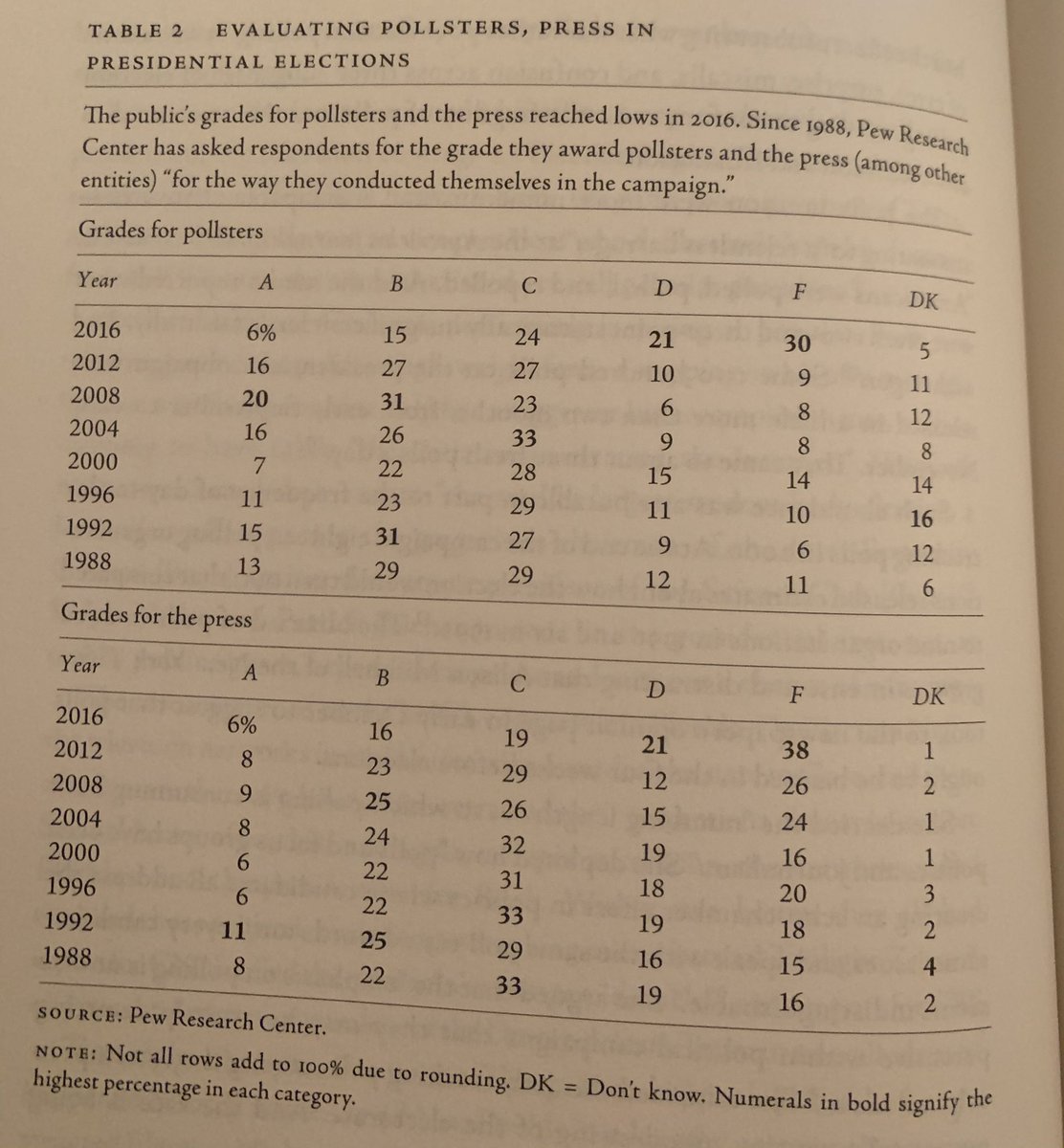
Prez polls missed in 1948, 1952, 1980, 1996, 2000, & 2016 & we’ve had many repeated discussions: late movers, likely voter models, 3rd party overestimates, shy voters, sampling methods, absentees, undecideds, last-minute events, herding, misinterpretation
amazon.com/Lost-Gallup-Po…
amazon.com/Lost-Gallup-Po…
Polling miss Recriminations have long been intertwined with academic skepticism & a long feud over journalistic vs social science descriptions of campaigns. The precursor to data journalism was “precision journalism,” an explicit call for integrating social science.
presidential elections have long been seen as the big (often failed) test for public social science. Blaming presentation of results & too much certainty & worrying about influencing results have long histories. But reporting has long suffered from the problems blamed on polls
Americans blame the polls when they predict poorly, but they nearly always give the press poor grades for campaign coverage 

• • •
Missing some Tweet in this thread? You can try to
force a refresh









